The MSF Speaking Out podcasts are a new series adapted from the original Médecins Sans Frontières/Doctors Without Borders (MSF) Speaking Out Case Studies (SOCS). Like the case studies, the podcast series examines the challenges and dilemmas surrounding speaking out. The series offers an in-depth look into these humanitarian dilemmas through the narration of extracts from MSF documents and press archives to help establish the facts. Interviews with the main MSF protagonists at the time of the events also provide insight into, and analysis of, the positions adopted, including personal reflections which offer fresh perspectives.
Speaking Out Podcast Srebrenica
soundcloud.comThe first podcast series is adapted from the MSF in Srebrenica, 1993-2003 case study. 5 episodes examine the speaking out constraints, questions, and dilemmas faced by MSF teams in Srebrenica. MSF was present in the enclave since the beginning of its siege by the Bosnian Serb forces in 1993 until it fell in July 1995. During the fall, thousands of Bosnian Muslims were massacred. These massacres were qualified by the International Criminal Tribunal for the former Yugoslavia as genocide in 2004.
Speaking Out Srebrenica podcast
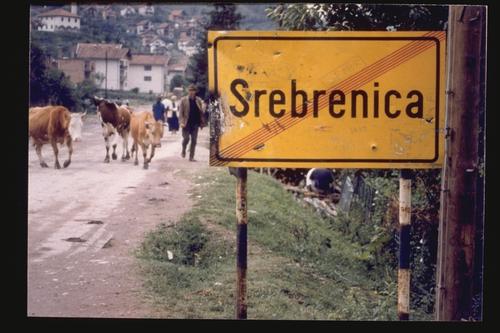
Episode 1: Entering the Enclave
Even after the United Nations (UN) declared Srebrenica a ‘safe area’ in March 1993, the Muslim community trapped inside the city was living under constant shelling. MSF provided medical care while starting to question how much protection the UN could actually provide.
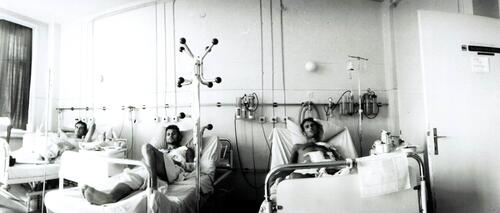
Episode 2: prison doctors
MSF was the only provider of medical care in Srebrenica as the violence intensified. MSF wondered if our role had become more like de facto prison doctors in the besieged city. Was MSF inadvertently contributing to the Bosnian Serbs' strategy of ethnic cleansing? Would calling for the evacuation of Bosnian Muslims actually result in aiding the Bosnian Serb’s ethnic cleansing policy of driving the people out and claiming the land? And what if Bosnian Muslims wanted to leave? What should the position of MSF have been?
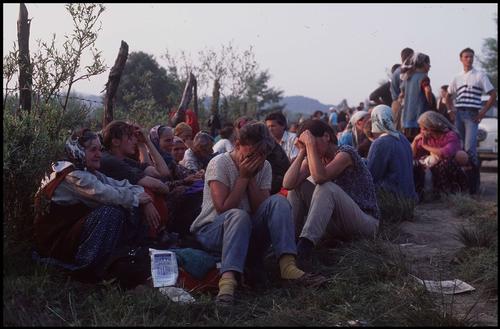
Episode 3: The fall of Srebrenica, the so called "Safe Zone"
Srebrenica fell to the Bosnian Serbs in July 1995 and approximately 8,000 Bosnian Muslim men and boys were massacred. How could this happen in the presence of United Nations (UN) peacekeepers in this so-called ‘safe zone’? What mechanisms did MSF put in place to speak out over the UN’s inability to protect the people of Srebrenica?
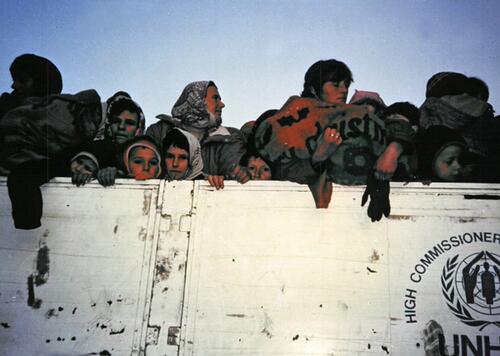
Episode 4: Peace agreement versus justice
Following the fall of Srebrenica, thousands were dead, missing or relocated to refugee camps. MSF questioned what could be done to ensure that peace did not take precedence over justice. Where did the responsibility for these actions and inactions lie?
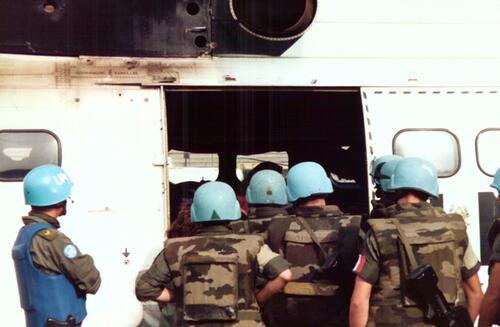
Episode 5: Mechanisms and expectations
Many nations were not taking responsibility for their (in)actions in the enclave. MSF France decided to put pressure on the French parliament to investigate France’s role in the fall of Srebrenica, by issuing an appeal for an investigative parliamentary commission. Should a humanitarian organisation speak out and advocate for official government inquiries in order to place responsibility, document events, seek justice and defend human rights?
"MSF in Srebrenica. 1993-2003" Speaking Out Case Study.
Speaking Out Podcast Hunting and killing Rwandan refugees in Zaire-Congo
soundcloud.comThis podcast is adapted from the case study “The Hunting and Killing of Rwandan Refugees in Zaire-Congo. 1996-1997". In 8 episodes, it investigates MSF's experience in the aftermath of the 1994 Rwandan Tutsi genocide, and in particular, with the impact on local populations and refugees living in the Democratic Republic of Congo (formerly Zaire).
The series expresses on the constraints, questions, and dilemmas faced by MSF teams attempting to bring relief to Rwandan refugees and local populations.
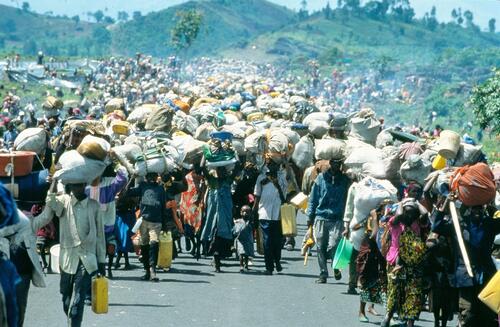
Episode 1: Resumption of war in eastern Zaire
In 1996, MSF attempts to alert the international community about the resurgence of conflict in eastern Zaire, as witnessed by teams on the ground. The perpetrators of the Rwandan Tutsi genocide, living in refugee camps, threaten and attack the Zairean civilian population. The same perpetrators are holding Rwandan refugees that fled the 1994 genocide, hostage within the camps. The new Rwandan regime and its Zairian ally, the Alliance of Democratic Forces for the Liberation of Congo-Zaire (ADFL), launches counter attacks on the refugee camps.
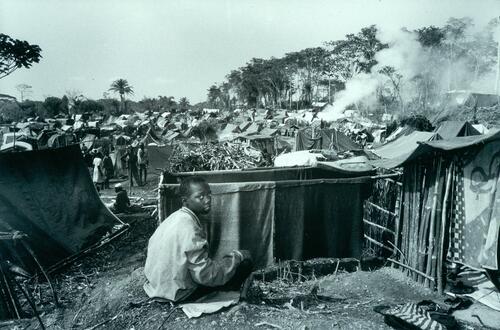
Episode 2: Information war over refugee numbers
As the instability of the region increases, MSF and other humanitarian organisations are eventually forced out of eastern Zaire entirely. MSF suspects that thousands of refugees are suffering and at risk of dying. The organisation decides to launch an appeal for an armed international intervention and communicates about the plight of the population, predicting a health catastrophe, if access for aid agencies is not provided.
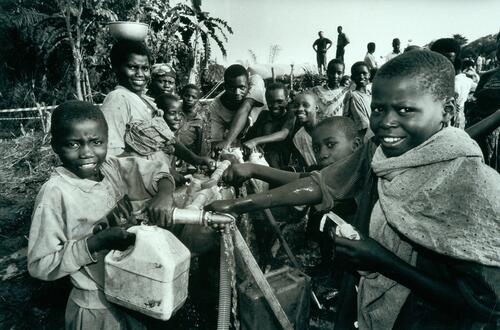
Episode 3: Under fire in the press
In November 1996, the offensive led by the ADFL and Rwandan forces empties the camps in eastern Zaire of their population. Some refugees were repatriated to Rwanda and others fled into the neighboring forest. MSF denounces the repatriation conditions and is reproached by the press for "catastrophic" forecasts made a few weeks earlier.
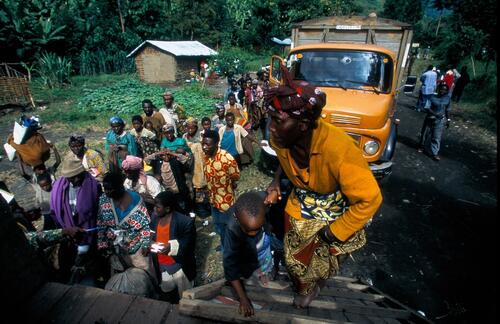
Episode 4: Humanitarians used as bait
Finally allowed into South Kivu, a province in eastern Zaire, the MSF teams discover that refugees are being massacred by the ADFL and its allies, particularly in the Massisi and the Shabunda regions. MSF realises that MSF teams are used as bait by the ADFL to lure the refugees out of the forests and kill them.
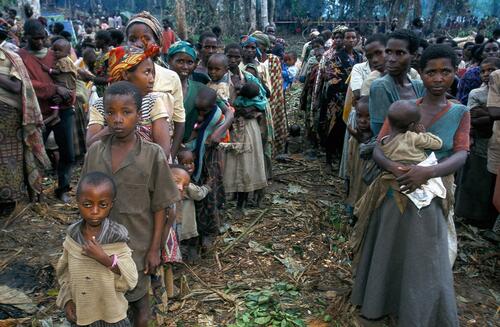
Episode 5: Forest exodus
The ADFL takes control of all of the Kivu province and refugees continue to flee their rapid advance eastwards through the forest. MSF struggles to maintain access to the refugees amidst the violence, restrictions, and threats to team safety, while receiving continued reports about refugee massacres.
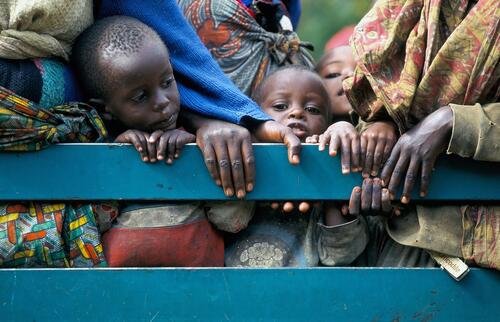
Episode 6: Silent vs public advocacy
MSF's exploratory mission teams complete their reports on their Masisi and Shabunda visits. Details of mass graves, massacres, and the fact that the ADFL used humanitarian teams as bait to lure refugees out of the forests, sent shock waves through MSF offices. A debate about the use of the information collected ensued: should it be made public or not?
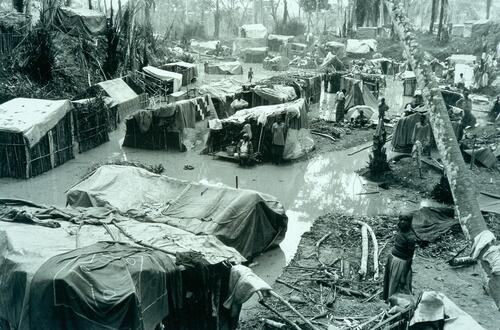
Episode 7: The ‘Forced Flight’ report
In May 1997, MSF published a new study describing the movements of refugees in the Great Lakes region of Africa and the fate of refugees. MSF planned to distribute the report to a small group of journalists, asking them not to cite MSF as the source of the information. However, a lack of communication between MSF offices and with the teams in the field, exacerbates tensions.
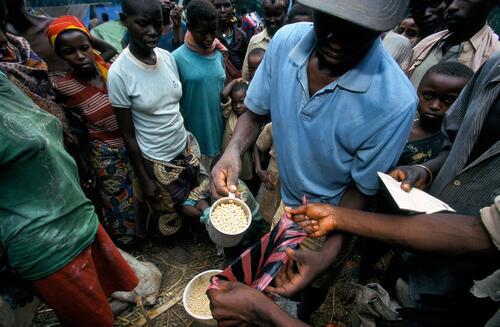
Episode 8: Learning from retrospective reports
From mid-1997, MSF teams try to work together again. The organisation publishes retrospective studies that trace the odyssey of the Rwandan refugees through the Zairean jungle and contributes testimony to international investigations on human rights violations in the region.
"The Hunting and Killing of Rwandan Refugees in Zaire - Congo.1996-1997" case study
Speaking out podcast: War Crimes and Politics of Terror in Chechnya, 1994 – 2004
soundcloud.comThis podcast is adapted from the case study “War Crimes and Politics of Terror in Chechnya, 1994 – 2004”. Over 9 episodes, it explores the challenges and dilemmas MSF faced during the two wars in Chechnya between 1994 and 2004. These wars raised many questions for MSF on when and how the organisation should speak out publicly about the war crimes its staff witness and the chilling effects of the politics of terror on the Chechen people.
Through MSF press releases, internal reports, speeches, and news articles of the time as well as eyewitness testimonies from MSF staff, this podcast series examines the challenges MSF faced when access to those in need was repeatedly blocked by the Russian authorities, forcing international staff to operate and train Caucasus teams at a distance. Later on, when staff members were kidnapped, MSF was confronted with a new dilemma - whether to raise a voice or lay low until their colleagues were released?
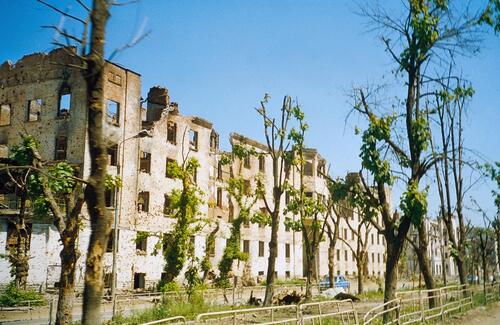
Episode 1: The First War in Chechnya
The first war of independence of Chechnya with the Russian Federation starts in 1994 and runs for two years during which access was regularly blocked by Russian forces. MSF feeds the press with information on the rapidly deteriorating conditions and the Russian’s refusal to let them into many areas of the country.
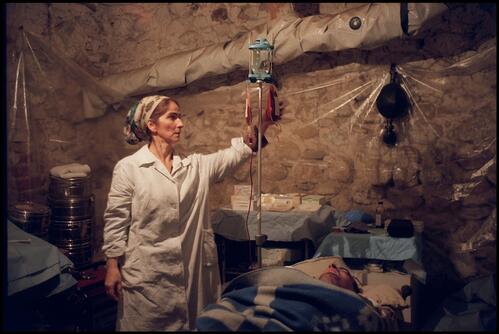
Episode 2: A Far Cry from Peace
In 1999, while the country and its people are still struggling to recover, the Russian authorities start bombing Chechnya again. The Russian Federation President, Boris Yeltsin talks publicly about a peace plan but his forces carry out a ruthless bombing campaign on rebel-held villages in southern Chechnya. MSF sections are united in wanting to speak out about what their staff witnessed before being forced out of the region. So what is the best way to draw the world's attention to the plight of the Chechen population, without endangering the national staff who continue to work in southern Chechnya?
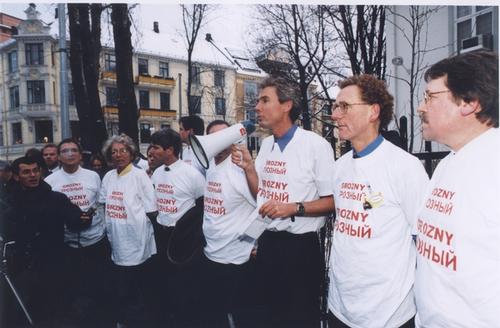
Episode 3: Advocacy without access
With hostilities in Chechnya flaring up again in what the Russian Federation terms as “anti-terrorist operations”, MSF leaders decide to take advantage of the ceremony of the reception of Nobel Peace Prize to call on the international community to intervene. But MSF teams are struggling to work in a Chechnya facing all-out war and dangerous security problems. Instead, MSF starts support refugees in the neighbouring republics where they collect first-hands accounts. Inside Chechnya, operations are run through staff members from the Caucasus who are trained, supported, and managed from afar by international teams in the region. MSF is in a difficult situation that raises many questions: Should MSF be speaking out based on refugees’ testimonies if there are no operational activities with international staff permanently on the ground sin Chechnya? When dealing with a regime in denial of the realities of a war, why is it important to use the word ‘war’? Is it up to MSF to call for this qualification?
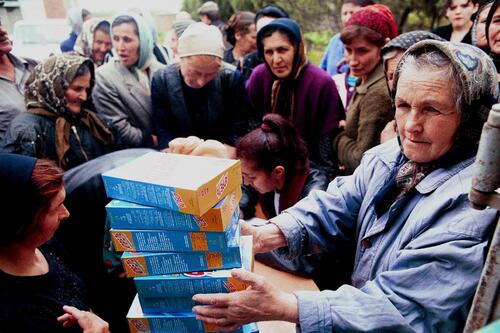
Episode 4: A cautious re-entry to Chechnya
Throughout the year 2000, MSF seizes every opportunity to raise the alarm on the Chechen’s fate with governments and institutions around the world, but to little concrete effect other than general condemnation. With still no international staff in the country, MSF sections resort to so-called ‘remote control’ management, using locally hired employees to deliver aid on the ground. Concerns over the organisation’s legitimacy in speaking out remain and soon one of the sections starts making unauthorised and dangerous trips over the border into Chechnya from Dagestan where they ran distributions of basic care items. Under attack in the Russian media, MSF wonders whether it should ignore or address the accusations of espionage regularly thrown at the organization?
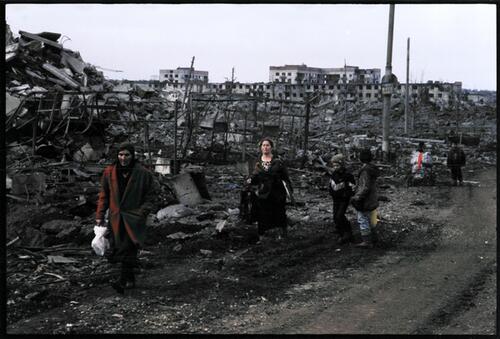
Episode 5: All on the same page
MSF’s operations in Chechnya are slowly starting back up again after 3 years of being run remotely. Although the bombing stops, general insecurity is pervasive and restarting these programmes is not without risks.
With an international team back on the ground in Chechnya, everyone agrees on the need to document the situation more thoroughly. A collection of patients’ accounts in the report “Chechnya: The politics of terror” is handed over at a press conference. The various MSF sections agree on a coordinated media strategy for getting news out of Chechnya and into the press, in particular the Russian media.
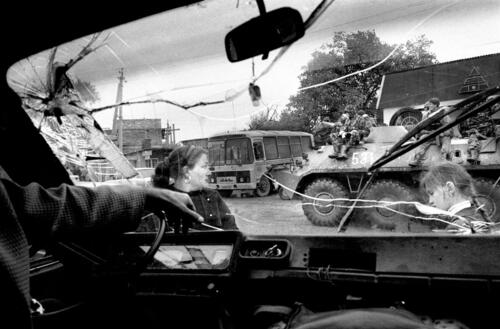
Episode 6: 'Kidnapped by mistake'
Kidnappings are becoming more commonplace in Chechnya and closer to home for MSF as various staff members are held for questioning. At the start of 2001, a key member of the team in the North Caucasus is taken hostage and questions are asked as to whether there's a causal link between MSF’s decision to speak out in the media and the kidnapping? MSF is faced with the following dilemma: should the organisation speak out in the media to create visibility and hopefully bring their colleague some much-needed protection? Or should MSF be as discreet as possible to avoid a rise in the hostage’s so-called ‘market value’? Is it wise to take active steps to secure the hostage's release, such as publicly denouncing the responsibilities, negligence or even complicity of the government controlling the territory where the kidnapping took place?
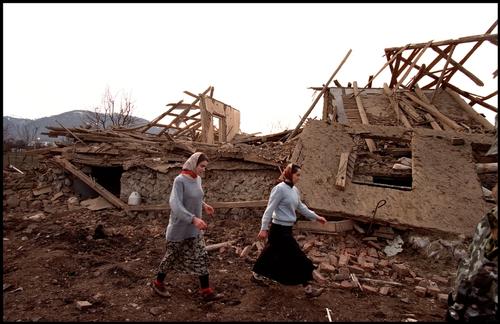
Episode 7: Anti-terrorist rhetoric
MSF’s operations have been closed down in Chechnya in response to the MSF Coordinator’s kidnapping. After his release, three weeks later, MSF tries to restart its operations in Chechnya but there are delays due to security issues, and for now, the only programmes in the country are run through remote control management from Dagestan, on Chechnya eastern border. Most of MSF’s Caucasus staff are behind the return and support MSF speaking out in the media. Meanwhile and in a statement after the September 11th 2001 attacks in New York and Washington, Vladimir Putin, President of the Russian Federation links Russian military operations in Chechnya with the anti-terrorist combat launched by the American government.
After the events of 11 September 2001, the West's attitude and view of Russia became more complacent, which weakened the impact of MSF's efforts to raise awareness of the plight of the Chechen population.
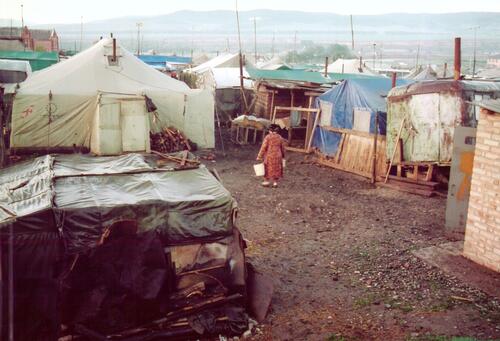
Episode 8: A Deliberate Strategy of Non-Assistance
The situation in the North Caucasus is becoming increasingly violent. The Russian federal authorities are forcing Chechen refugees to return to Chechnya, where they reign terror. They are also putting pressure on humanitarian organisations to stop helping refugees in 'Ingushetia, which would encourage them to return. When colleagues at other organisations are kidnapped in Chechnya, MSF closes down all operations in the country again. With a diminishing international presence in the warzone, MSF is once again faced with dilemmas - should it continue to speak out about human rights abuses its staff haven't witnessed? How can they help those in need and in danger in the region? And how long will it be before one of their own staff is once again held hostage?
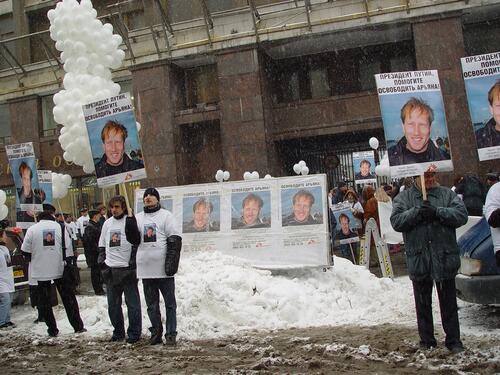
Episode 9: Speaking out in a time of kidnapping
In August 2002, the threat to MSF becomes a reality and another Coordinator, a Dutch national for the MSF Swiss section, is kidnapped in Dagestan. The organisation is once again faced with the dilemma of how and when to speak out on the situation in the North Caucasus while one of its members is held hostage. MSF opts to keep quiet at first, but as the weeks turn into months and the MSF Coordinator is still not released, MSF starts questioning whether it should take active steps to secure the hostage’s release by publicly pointing out a government’s responsibilities, negligence, or even complicity when a kidnapping occurs on its soil, or should it not enter into these conversations to avoid the potential for a government to dig in its heels? Tensions are running high, especially between MSF, the Dutch authorities and the family of the hostage, and some feel the structures within the organisation are not helping the situation.
"War crimes and politics of terror in Chechnya 1994-2004" case study


